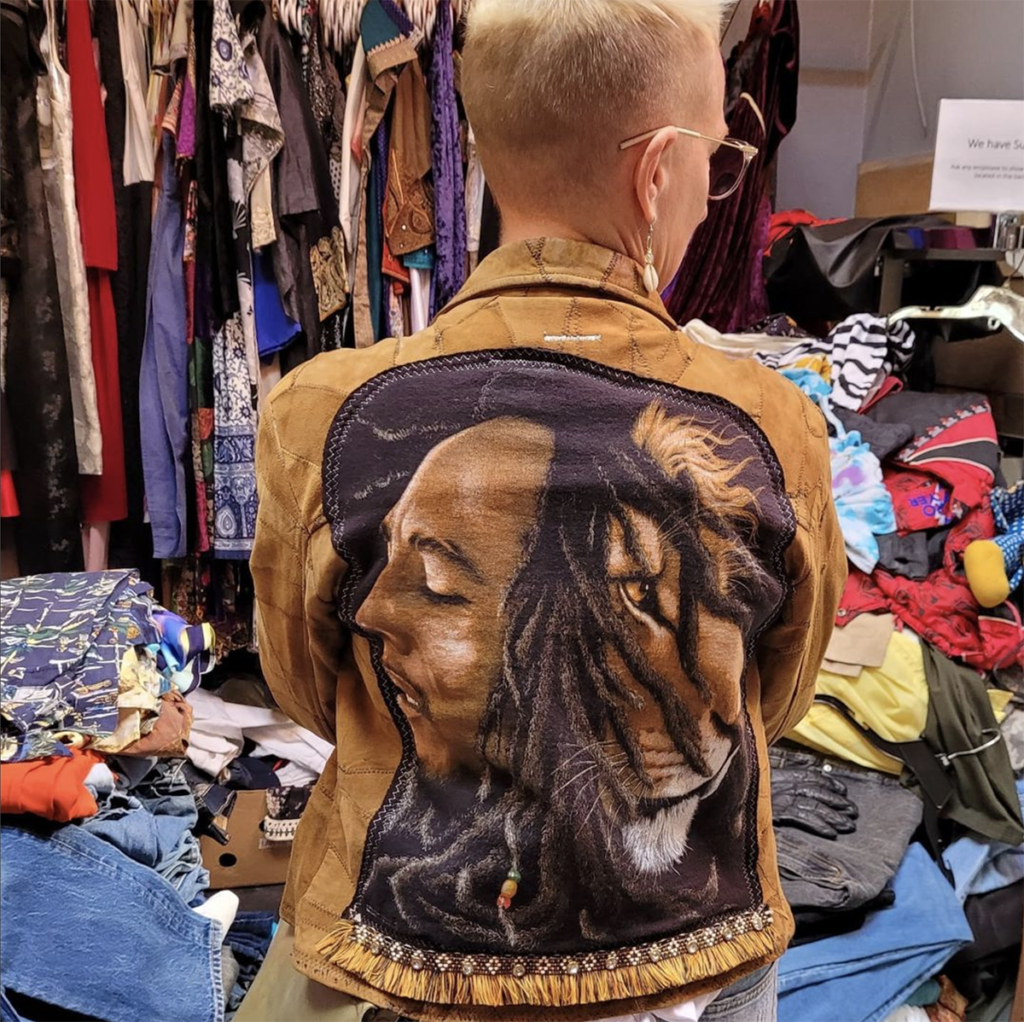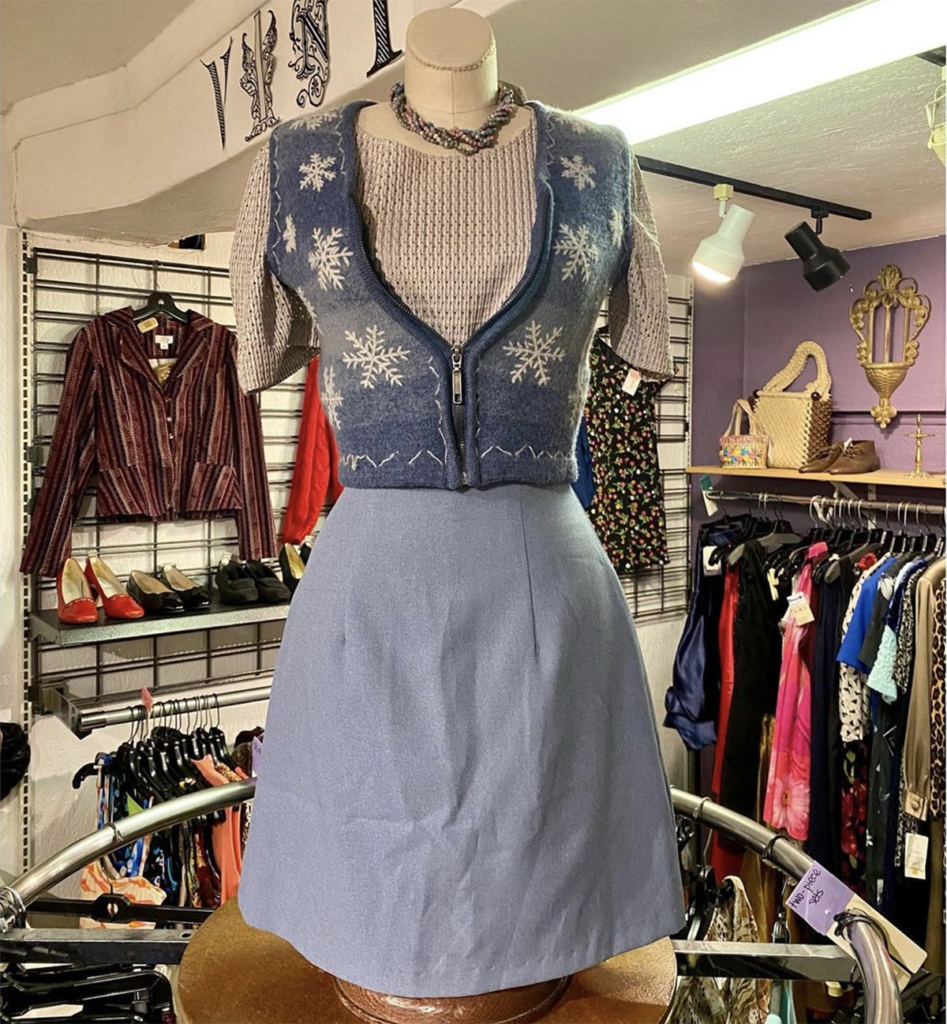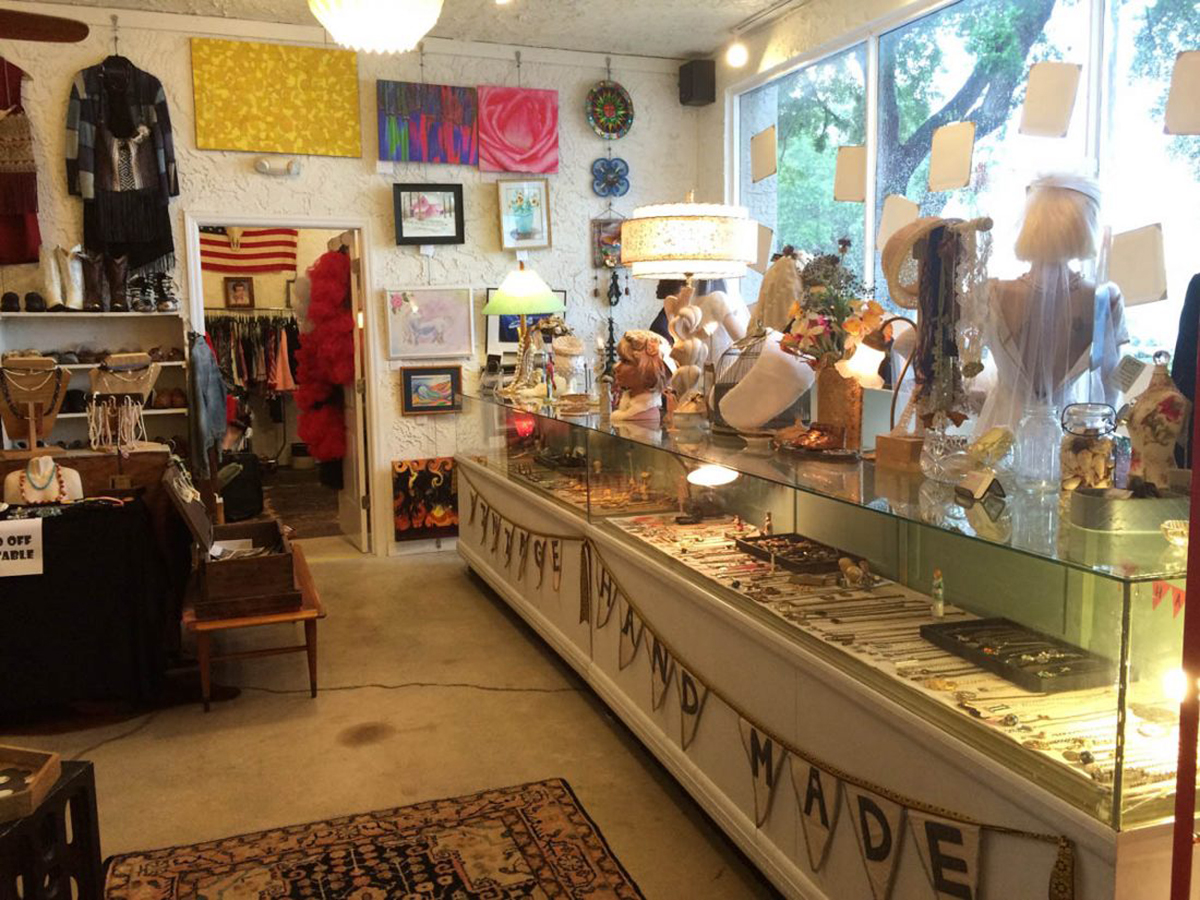Pictured above: At Artpool Gallery, reservations can be made to shop in store, or people can send offers for pieces shown on their Instagram.
Courtesy of @artpoolgallery on Instagram
By Lily Cannon
I was en route to Driftwood Cafe to write this article when I passed at least three separate girls with clothes I wanted to aggressively compliment and maybe steal.
That effectively sums up my thought process during my commute between classes: A cute pinstripe jumpsuit. Chic white boots. A better-looking dress than anything worn on “Emily in Paris.”
Whenever I do get the courage to ask where they got their outfits, the answer is mostly the same: Shein.
It makes sense. Shein is an incredibly successful e-commerce retailer with revenue falling around an estimated $10 billion in 2020 alone. Its clothes are affordable, trendy and helped in no small part by Tik Tokers showering them with attention in so-called “Shein hauls.”
When you work part-time at minimum wage, finding a $21 velvet bodycon dress is a steal. That doesn’t mean there aren’t downsides to this company as well.
Many of the Chinese factories that Shein sources from reportedly break national labor laws, with Nancun Village, commonly referred to as “Shein Village,” adopting work hours set from 8 a.m. to 10 p.m. Workers are only paid for each article sold instead of having an established wage.
To say nothing of the company itself claiming to release 1,000 new items a day, a practice that doesn’t bode well for the general fashion industry’s reputation as a contributor to more than 10% of CO2 emissions globally. Nor the repeated claims of taking designs from smaller businesses and designers like Mariama Diallo.
One might say this is just part of “fast fashion,” but it’s also a normalized toxic practice.
So how can USF Bulls remain stylish and contribute to the university’s environmental efforts?
During that same walk to Driftwood, I passed a collection of white tents and a buzz of people who served at this year’s St. Pete Craft Fair, an event that is emblematic of the vintage solution to this problem. One tent in particular contained rainbow felted dresses straight out of an Impressionist painting that the owner herself took over a 100 hours to complete.
St. Petersburg houses a thrift community ranging in both price and content, but nonetheless one that shares an affinity for ethically-sourced garments.

One boutique on Central Avenue, Wendy’s Closet, is recognizable immediately from its bright neon sign urging its primarily young consumers to trade, donate and shop. Store owner Wendy Barrett, who wore a stylish pair of converse platforms during our interview, has stayed local for over thirty years, but maintains a fresh, fun and accessible feel to her business.
“People can afford my really good stuff there,” Barrett said.
There are walls of cowboy boots, a rack dedicated solely to motorcycle jackets and indie band t-shirts that could be seen on any number of influencers.
“I have everything,” Barrett said.
The retro feel to Wendy’s Closet remains applicable to the wash of 60s and 70s trends, but students won’t miss the newer pieces, many of which arrive second-hand from Shein.
Her perspective on fashion also hits with the current state of this industry: “People change their whims on a daily basis” but, “it’s fun. It’s history.”
A block away from Wendy’s Closet lies another St. Petersburg gem: Artpool Gallery, which hosts a curated collection of vintage pieces that are everything to gawk at. Its storefront belies the treasures inside, with a series of mannequins dressed in everything from genuine 50s party dresses to fun boas straight out of a Harry Styles concert to recycled leather shirts.
The business itself has stayed in St. Petersburg since 2008 and remains a microcosm of the city’s individuality, while still offering designs that are both effortless and sophisticated. The boutique is currently only accepting reservations for shopping on its website, but customers are welcome to get an item from its Instagram as well.
If students are looking for other Instagram-able garments, the Revolve Clothing Exchange on Fourth St. North proudly shows off styles I guarantee will be worn at next year’s Homecoming. I still think of that particular pink frilly dress with a plunging neckline and sigh.

All three stores are size-inclusive, which remains another pressing issue in the fashion realms, but provides all the more reason to shop local and sustainable.
If you’re ever bored on a Saturday afternoon, I recommend bringing friends and perusing through any of these three shops, and you might just find something that can’t be replicated anywhere else.
Lily Cannon is a freshman English major at USF St. Petersburg.



